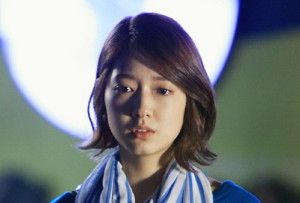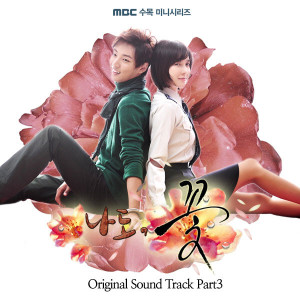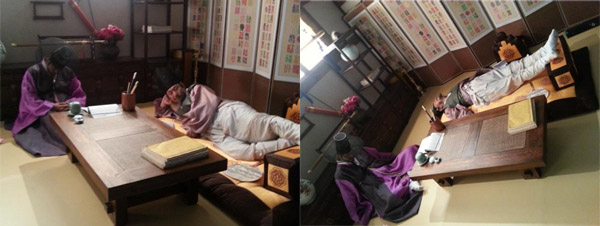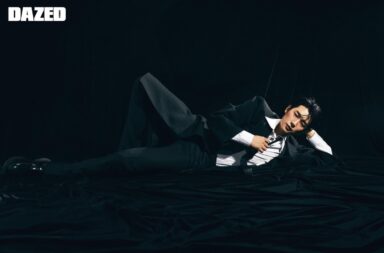 As avid K-pop fans, we have all seen our fair share of K-drama and the disease that plagues it – the live-shoot system. Live-shoots in drama production equate finishing the episode in real-time. For example, the episode for the week is shot and edited the same week it is supposed to air. But why do production companies put themselves, their crew, and the actors and actresses in such dire situations?
As avid K-pop fans, we have all seen our fair share of K-drama and the disease that plagues it – the live-shoot system. Live-shoots in drama production equate finishing the episode in real-time. For example, the episode for the week is shot and edited the same week it is supposed to air. But why do production companies put themselves, their crew, and the actors and actresses in such dire situations?
The bottom line is profits and ratings. There are many advantages to adopting the live-shoot system. Three main advantages are that it allows for flexibility in terms of script changes, drama episodes can be shortened or lengthened based on ratings, and there is less risk. If Anthony Kim of King of Dramas has taught us anything, it is that ratings are the do-or-die point of a drama. Unfortunately, there are more disadvantages than there are advantages to adopting this system. I, for one, would like to rally the hearts of the masses and put a stop to this system.
 Companies adopt this disastrous system despite the many dangers it harbors because it allows for more control over the storyline. While episodes are airing, companies will monitor the scenes, paying close attention to the peaks and lows of the episode, taking note of what tugs at the heartstrings of the viewers and trying to incorporate that element as much as possible. That is why occasionally in some dramas, there is a huge gaping change in the story that is unexpected and seemingly thrown into the story in order to up the ratings; the logic goes missing or characters suffer a case of identity crisis. Exhibit A: Mary Stayed Out All Night, which started off interesting, but half-way through, the logic ran out the window. Exhibit B: Lady Castle’s second male lead suffered character confusion due to the numerous script changes.
Companies adopt this disastrous system despite the many dangers it harbors because it allows for more control over the storyline. While episodes are airing, companies will monitor the scenes, paying close attention to the peaks and lows of the episode, taking note of what tugs at the heartstrings of the viewers and trying to incorporate that element as much as possible. That is why occasionally in some dramas, there is a huge gaping change in the story that is unexpected and seemingly thrown into the story in order to up the ratings; the logic goes missing or characters suffer a case of identity crisis. Exhibit A: Mary Stayed Out All Night, which started off interesting, but half-way through, the logic ran out the window. Exhibit B: Lady Castle’s second male lead suffered character confusion due to the numerous script changes.
Another advantage the live-shoot system brings is the ability to determine the life of the drama – will it continue its predetermined episode run or will it be cut short to save on the costs? With extremely popular dramas, extension talks are bound to occur. Gaksital (Bridal Mask), due to its consistently high ratings of 15% and above, had an exceptionally well-written and executed 4-episode extension. Occasionally, the production crew will decide not to extend the drama, and therefore protect the quality of the drama. Weekend drama My Daughter Seo-young has consistently brought in ratings of 45.6% but the writers and production crew decided not to extend it. With dramas that are less popular and therefore bring in lower ratings, the production may decide to cut their losses and wrap-up the story a few episodes earlier. Me Too Flower had an initial 16-episode run but due to the low ratings of 5-6%, possibly augmented by the competitors it was up against, it too was cut short to 15-episodes. 
It is less risky for the production to adopt a live-shoot system as that occurs after a time slot for a drama has occurred. It guarantees that the drama will air on T.V. and will have the possibility of being seen by households. Pre-shot dramas run the risk of not being able to secure a slot, and therefore airtime, and will not be able to recoup the costs of production. City Conquest, which had initially decided to shoot before securing a timeslot, obtained a timeslot and lost it. They are now in the midst of production with no date set for primetime. Full House 2, which has no relationship to the first ever-popular Full House, did not get primetime until a couple years later. I would not be surprised if it was because production wanted to ride on the popularity of Park Ki-woong, who starred as the villainous second lead in the insanely popular Gaksital (Bridal Mask). Full House 2 aired a few months after Gaksital ended.
In light of these reasons, it is no wonder production companies are bound to adopt this system. But the dangers this system brings with it are more than enough to warrant red flags and a reconsideration of its adoption.
 Live-shoots leave little margin for error, reshoots, and last minute changes. Thus, one mistake could mean the loss of several scenes and precious editing time. Some dramas that adopt the live-shoot system end up with choppy editing, shaky camera syndrome, and other things that completely misalign – as what was most commonly the case with Dr. Jin. Other dramas start out with so much potential such, as the case of Faith, but the perils of the live-shoot system ruined what could have been an amazing execution.
Live-shoots leave little margin for error, reshoots, and last minute changes. Thus, one mistake could mean the loss of several scenes and precious editing time. Some dramas that adopt the live-shoot system end up with choppy editing, shaky camera syndrome, and other things that completely misalign – as what was most commonly the case with Dr. Jin. Other dramas start out with so much potential such, as the case of Faith, but the perils of the live-shoot system ruined what could have been an amazing execution.
With that said, live-shoots are unethical; it works the actors, actresses, and crew into near collapsible exhaustion. Alas, the show must go on! We have oftentimes seen actors and actresses state that during a drama shoot or after filming wraps, they are rushed to the hospital for IVs due to the demanding and exhaustive filming schedules.
As Yoon Eun-hye previously shared in an interview:
I was taken to the hospital after filming… I think I had four IVs in me.
Getting four IVs just so you can continue to film is definitely not a healthy practice, and furthermore, should not be proudly displayed as proof of dedication to one’s craft. Such an excessive wear and tear on the bodies of actors and actresses have an effect on their mental states. Jaejoong and his co-actress once shared only 30 minutes of sleep daily during the filming for both Dr. Jin and The Jackal Is Coming. No, 30 minutes of sleep is not enough rest for your body.
Such inconsideration for the health of those involved can lead to rebellion from your actors and actresses. While I understand the need to not run off in the middle of a shoot, there is something to be said when a dedicated actress has decided to run off because they were so overworked and just needed a break.
 The live-shoot system also affects the handlers and therefore it brings additional dangers. Since handlers for the talents have to remain with their charge during schedules, they are also being pushed to exhaustion. Exhausted handlers bring unforeseen dangers to the lives of their charge, since they are expected to operate machinery (driving) and are often too sleep-deprived to safely operate said machinery. The hectic shoot schedule for Heartstrings led to Park Shin-hye‘s manager running into a guardrail and the hospitalization of the actress. It has become pretty standard that once a drama filming starts, some sort of accident or mishap will occur.
The live-shoot system also affects the handlers and therefore it brings additional dangers. Since handlers for the talents have to remain with their charge during schedules, they are also being pushed to exhaustion. Exhausted handlers bring unforeseen dangers to the lives of their charge, since they are expected to operate machinery (driving) and are often too sleep-deprived to safely operate said machinery. The hectic shoot schedule for Heartstrings led to Park Shin-hye‘s manager running into a guardrail and the hospitalization of the actress. It has become pretty standard that once a drama filming starts, some sort of accident or mishap will occur.
Furthermore, with such strict and demanding schedules, relationships will get strained, clashes will be inevitable, and a deterioration in the quality of the production will be noticeable. As a K-drama fan and a believer that there is no such thing as too much eye-candy, there comes a point when even the eye-candy cannot distract from the poor execution. We fans do take notice of poorly happed together scenes of an episode, drastic gaping changes in the plot, and character confusions at the half-way point of a drama. Unless there are structural changes, these issues coupled with the reckless endangerment to our actors and actresses denigrate the system.
What do Seoulmates think? Should we fans go up in arms and demand a change to the system to protect our favorite actors and actresses?
(Dramabeans [1], [2], My Daily, YTN, Sports Seoul, Enews24, Squidoo, Images via MBC, 1st Look Magazine, SBS)



